- Home
- Beverly Barton
Killing Her Softly Page 2
Killing Her Softly Read online
Page 2
"What other officer responded to the call?" Chad asked.
"Del Treacy. He's inside with the ME." Jarnigan's voice trembled.
Jim gave Chad a back-off glance, then stepped up on the porch where Jarnigan stood guarding the open front door, and put his hand on the man's shoulder. "Take it easy, son. We're all on the same team here."
"Yes, sir."
"This your first murder case?"
"Yes, sir." Jarnigan sighed deeply.
Jim turned to Chad. "Why don't you go out there and get the names of the curious and find out if they know anything about what happened. I'll take over here."
Chad bristled. Too bad. Jim still outranked him. He probably should have sent Jarnigan to interview the bystanders instead of ordering his partner to do the job. But it was liable to be a long night and a little bit of Chad went a long way. He figured he'd better separate himself from the cocky kid as much as possible so he didn't lose his cool with the department's darling boy.
"Yeah, sure." Chad grunted, then headed down the sidewalk.
Jim pulled out a notepad and pen from his inside coat pocket, then asked Jarnigan, "What time did y'all arrive on the scene?"
"Ten forty-seven."
Jim made a note of the time, then jotted down the address, the approximate temperature and weather conditions. Sixty-three degrees. Cool, clear, stars in the sky. "Tell me what y'all found when you arrived."
"Uh . . . er. . . the guy who'd called 911 met us at the door." Jarnigan glanced over his shoulder. "Del's got him inside. In the living room."
"Go on."
"He said he found the victim when he arrived. They . . . er. . . they had a late date. He said she was already dead when he got here."
Jim nodded as he glanced around, taking note of the specifics of the old brick house. One door—a double door at the front. Four long, narrow windows. All four shut tight.
"I'm going inside," Jim said. "You stay out here and help Sergeant George. And don't let him intimidate you."
"No sir. I mean, yes sir, I won't."
Jim entered the large marble-floored foyer and eyed the sweeping staircase leading to the second floor. A crystal chandelier glistened brightly overhead. A set of double pocket doors to the left were closed but the matching set to the right were open, revealing the twenty-by-twenty living room. Hardwood floors. Fireplace. No fire. Intricately carved wooden mantel. Traditional decorating, probably created by an outrageously expensive interior designer.
A stocky, black-uniformed officer stood talking to a man wearing an expensive dark suit, a white shirt and a red tie. When Jim approached the entrance to the living room, both men glanced at him.
"Officer Treacy, I'm Lieutenant Norton. Homicide."
"Yes, sir."
"Who's this you've got with you?"
The tall, broad-shouldered man turned all the way around and faced Jim. Wavy black hair and dark eyes, bronze skin and handsome Hispanic features. Good-looking devil, Jim thought. Not a pretty boy like Chad. Just damn impressive.
"I'm Quinn Cortez." The man's black eyes narrowed as his gaze met Jim's. "I'm the one who found Ms. Vanderley's body."
The muscles in Quinn's belly tightened as he studied the homicide detective. The guy looked vaguely familiar. Rugged features. Short brown hair. Somewhere between thirty-five and forty. Quinn never forgot a face. He'd said his name was Norton. His identity didn't come to Quinn immediately, but it would. Lieutenant Norton was a couple inches taller than Quinn, well-muscled and lean, with a world-weary look in his pensive blue eyes that hinted of pain, both physical and emotional.
"The Quinn Cortez?" Norton asked his hard face emotionless.
Quinn grunted. "Yeah, I'm the Quinn Cortez."
"You just won that McBryar case over in Nashville," Norton said. "What brought you to Memphis tonight?"
"Lulu—Ms. Vanderley called earlier and invited me. Our get-together was supposed to be a celebration."
"Want to take me, step-by-step, through what happened from the minute you drove up in the driveway until the officers showed up?"
"Sure." Quinn knew the routine. Being a criminal lawyer, he had cultivated friendships with as well as made enemies of numerous lawmen in a number of states, where pro hac vice rules allowed him to practice outside his home state of Texas.
"That your Porsche parked in the drive?" Norton asked.
Quinn nodded. Was Norton one of those men who would automatically dislike Quinn because he was rich and famous? He'd run into his share of green-with-envy yo-yos who had tried to give him a hard time, but they'd all learned they couldn't intimidate Quinn Cortez, nor could they scare him. But he'd never been in a situation such as this, had never been a suspect in a murder case. And he knew as well as he knew his own name that since he had found Lulu's body and the two of them had been lovers, he would immediately top the police's persons-of-interest list.
"I got here around ten-thirty," Quinn said. "I parked got out, walked to the door and let myself in with the key Lulu kept hidden beneath the doormat." When Norton squinted and frowned Quinn nodded. "Yeah, I know it wasn't very smart of her to keep a key in such an obvious place, but Lulu was like that. She enjoyed flirting with danger."
"Did she now?"
"Hell, yes. Why else would she have lived the way she did? In case you don't know anything about Lulu, let me tell you that the lady liked her thrills. She was into skydiving, mountain climbing, deep-sea diving and she had run through as many bad boys as possible since she turned fifteen."
"You've known the lady that long—since she was fifteen?" Norton asked.
Quinn shook his head. "No, but she liked to brag, and her friends who've known her for years verified what otherwise I would have thought were tall tales."
"So, Cortez, were you just one more bad boy to Ms. Vanderley or were you somebody special?"
Quinn shrugged. "I've never given it much thought, but I suppose I was just one more in a long line. Lulu and I are— were—a lot alike. Neither of us was into serious relationships."
"You were lovers?" Norton asked. "Yeah," Quinn replied. "On and off. It wasn't an exclusive relationship by any means."
"Before tonight, when was the last time you saw Ms. Vanderley?"
"About six weeks ago. She drove up to Nashville and stayed a couple of days."
"Hmm. . . Okay, pick up with when you arrived tonight and let yourself into the house."
"I walked inside and called Lulu's name, but she didn't respond so I went down the hall and straight to her bedroom. I assumed she was in there waiting for me."
"The master bedroom is downstairs?"
"That's right."
"And was she in the bedroom?"
"Yes. She was lying on the bed flat on her back, wearing a black teddy and. . . well, at first I thought she was asleep." Quinn clenched his teeth. Lulu had looked lovely lying there, her eyes closed her body resting in a languid pose. He'd bent down over her, intending to kiss her. But the minute he touched her shoulder and she didn't even flinch, he'd known she wasn't simply sleeping, even though she'd still felt warm to the touch. At that same time, he'd smelled the stench of death and had noticed there in the dim candlelight, the waxy, translucent look of her skin. "She was dead. Probably an hour or less at the time I found her. Rigor mortis hadn't set in and her body was still warm."
"Hmm. . ."
Quinn could tell by the quiet, contemplative way the lieutenant was studying him that the guy would probably wind up hauling his ass down to headquarters for further questioning. There was only one way out of this mess and that was complete cooperation. Tell the police the truth and prove he hadn't harmed a hair on Lulu's pretty little head.
But could he prove he didn't kill Lulu? He had no alibi for the time of her death—he'd been en route from Nashville and had stopped for a quick nap when he'd gotten so groggy he couldn't keep his eyes open. He'd pulled off Interstate 40 somewhere between Nashville and Jackson and had slept for well over
an hour and a half.
Norton glared at Quinn. "Considering you and Ms. Vanderley were lovers, you don't seem too torn up about her death."
"I'm not the emotional type. I don't fall apart in a crisis. If I did I wouldn't be the Quinn Cortez. But I'm not a completely heartless bastard." Quinn looked Norton right in the eyes. "I cared about Lulu, as a friend. And as a lover. If I could change what happened to her, I would. But all I can do—all any of us can do now—is determine how she died. And if she was murdered, find the person responsible."
Norton eyed Quinn skeptically.
"And no, lieutenant, I didn't kill her. I had absolutely no motive."
Before Norton had a chance to respond a man of probably fifty, with a receding hairline and a potbelly hanging over his belt, came into the room.
"That you, Jim?" the man asked.
Norton turned and nodded. "Yeah, it's me. What have you got for us, Udell? Suicide? Accident? Murder?"
Jim Norton. Jim Norton. Quinn repeated the name several times and suddenly a light clicked on inside his brain. Jim Norton, a running back for UT twenty years ago. That's where Quinn had seen Norton. Norton had been star-athlete Griffin Powell's teammate and best friend. The entire South— and that included Texas—had kept track of the two men who'd been destined to turn pro. Oddly enough, considering both had had NFL star quality written all over them, neither man had played professional football.
"Murder," the ME said. "Asphyxiation."
Quinn had suspected as much. When he had found Lulu lying there so peacefully, he'd desperately wanted to believe she wasn't dead that he could somehow save her. His first impulse had been to perform CPR, but when he'd lifted her right arm to check for a pulse and seen her bloody hand he'd known that he had arrived too late. If only he hadn't stopped for that damn nap, he might have gotten here in time to prevent her death.
"There's one other thing," the ME said.
"What's that?" Jim Norton asked.
"The index finger on her right hand was amputated. Postmortem."
Annabelle Austin Vanderley was at her best playing hostess. It was a role she'd been born and bred to perform, as had generations of women in her family. Tonight's gala event—a buffet supper to raise funds for the Christopher Knox Threadgill Foundation—hosted society's elite from Mississippi, Alabama and several other surrounding states. Tickets had been a thousand dollars each and all proceeds went directly into the foundation that Annabelle had established ten years ago, shortly after her fiancé, Chris Threadgill, had become the victim of a nearly fatal car crash that left him a paraplegic. The foundation was dedicated not only to research, but also to assisting paralysis victims and their families. Not everyone was as fortunate as Chris had been—to have been born into a wealthy family who could afford to provide him with the best possible care.
Almost two years had passed since Chris's death and even now Annabelle found it difficult to accept that he was gone. She had made him the center of her life for many years, even though they had never married. His choice, not hers.
Annabelle strolled from room to room in her uncle Louis's antebellum mansion, where the charity supper was being held checking on everything from the string quartet playing in the front parlor to the caterers working feverishly in the kitchen. She was the consummate hostess, with the ability to multitask with the aplomb of a juggler balancing half a dozen balls in the air at once. But this event was only one of three she had overseen this month—the other two being a circus for underprivileged kids and a Winner Takes All charity event at one of Biloxi's many gambling casinos.
At twenty-three, when she'd been planning her wedding to Chris, she had thought by the time she was thirty-four, she would be the mother of several children and the wife of either the governor or a senator. Chris had been destined to follow in his father's and grandfather's political footsteps. But instead of living her dream, she was still single, childless and filled her days—and as many nights as possible— with overseeing the various Austin and Vanderley philanthropic organizations.
"You look lovely tonight, Annabelle," her cousin, Wythe Vanderley, said as he came up behind her and slipped his arm around her waist.
Annabelle froze to the spot. Then forcing a smile, she eased away from Wythe and turned to face him. "And you look handsome, as always." Wythe was an attractive man, in an aristocratic way that drew women to him like moths to a flame. And most of those women—the ones who'd gotten too close to that flame—had been badly burned. Wythe was a scoundrel and despite their being first cousins, Annabelle disliked him intensely. He'd been a disappointment to Uncle Louis, who supported Wythe in grand style, as he did Wythe's younger half sister, Lulu. To quote her aunt, Perdita Austin, "Neither of Louis's children are worth a damn."
"Lovely but cold Annabelle," Wythe said softly so that no one passing them in the hallway could overhear. "The right man could thaw you out and melt that frigid heart of yours."
"If you'll excuse me, I have—"
Before Annabelle could escape her annoying cousin, he grasped her wrist to halt her. She glared at him, her look demanding he release her immediately.
"I'm volunteering for the job, you know," he told her. "I'm just the man who could heat you—"
"Unless you want to make a spectacle of yourself, I suggest you release me," Annabelle said with absolute conviction. "Otherwise, I'll have no choice but to slap that smug look off your silly face."
He released her instantly, but leaned close and whispered, "One of these days, bitch, you'll get yours."
She offered him a deadly smile. "Maybe so, but I won't get it from you."
Annabelle rushed away as fast as she could walk without bringing undue attention to herself. If she didn't adore Uncle Louis and feel tremendously sorry for him, she'd never come to this house again, never subject herself to her cousin's harassment. As she made her way down the hall toward the dining room, intending to make sure everything was in order, she smiled and spoke to half a dozen acquaintances. Annabelle knew everybody who was anybody and cultivated superficial friendships as easily as she performed her hostess duties.
When she entered the dining room, her uncle Louis's butler, Hiram, spoke her name quietly as he came to her side. "Miss Annabelle . . ."
"Yes, Hiram, what is it?"
"Sheriff Brady's at the front door, ma'am, and he's asked to speak to you."
"Sheriff Brady? Did he say what it's about?" Had Wythe gotten in trouble again? Except for Uncle Louis's wealth and political connections, Wythe would already be in prison for statutory rape. Everyone in the county knew Wythe Vanderley had a penchant for teenage girls. And a sick hunger for rough sex.
"No, ma'am, but it can't be good. He said it's about Miss Lulu and he wanted to speak only to you."
How could something Lulu had done be of any concern to Sheriff Brady? Lulu had moved off to Memphis five years ago and was living in her mother's old house there in Chickasaw Gardens, the house Uncle Louis had bought his ex-wife as part of their divorce settlement when Lulu was twelve.
"Show Sheriff Brody into Uncle Louis's study, please, Hiram, and take him around the back way. Tell him I'll join him as soon as possible."
"Yes, ma'am."
Whatever had brought the sheriff to their door, Annabelle didn't want their guests to be aware of the lawman's presence. After making her rounds through the dining room to check that the champagne was ready for the midnight toasts due to begin shortly, Annabelle discreetly slipped away and hurried to her uncle's study. The minute she entered the room, Sheriff Brody, a stocky, middle-aged man, removed his hat and walked toward her.
"Ms. Vanderley, I'm afraid I've come with some awfully bad news," he said.
Annabelle's heart caught in her throat. "Bad news about Lulu?"
"Yes, ma'am."
"Has she been in an accident? Is she badly hurt?"
"I hate to be the one to tell you, but. . . your cousin Lulu is dead."
Annabelle's stomac
h knotted painfully. "Lulu's dead? How? When?"
"Tonight," Sheriff Brody said. "She was found dead in her bedroom. The Memphis police are treating her death as a homicide."
"Are you saying someone murdered Lulu?"
"It appears so. I'm terribly sorry, Ms. Vanderley. You can contact the Memphis PD, if you'd like, either tonight or in the morning. The lead detective on the case is Lieutenant Norton."
Annabelle shook hands with the sheriff and thanked him for coming personally to give her the terrible news about her cousin. As she turned and asked Hiram, who'd been waiting in the hallway, to escort the sheriff out, all Annabelle could think about was how on earth she was going to break the news to her uncle. Lulu was—had been—the apple of Uncle Louis's eye. He doted on his younger child who'd been born when he was fifty. With his health already so precarious, learning that the little girl he'd spoiled rotten and loved to distraction was now dead might easily kill him.
Chapter 2
Sitting alone in a quiet tenth-floor office of the Criminal Justice Center on Poplar Avenue, drinking a cup of coffee and waiting for his lawyer, Quinn Cortez kept telling himself that things weren't as bad as they seemed. After all, the police hadn't arrested him. He hadn't been charged with Lulu's murder. Not yet.
Not yet? Not ever. You didn't kill her. There is absolutely no evidence that you did. If the detectives suspect you—and they probably do—there is no way in hell they can prove you murdered Lulu.
Yeah, but there's no way you can prove you didn't.
Quinn's head pounded as if a couple of giant hammers were being repeatedly thumped against each temple. He leaned his head back against the wall and using his forefingers, massaged the pressure points.
When he had awakened from the nap he'd taken when he'd pulled off the road on his trip from Nashville to Memphis, his head had been throbbing; and downing a couple of aspirins hadn't helped. Finding Lulu dead and then dealing with the police had only increased the tension, which had reached migraine proportions. He'd been healthy as a horse all his life, but during the past eight or nine months he'd had several really bad headaches. First came the extreme grogginess that led to an odd blackout spell. The headaches came after he awakened lasted for a while and then went away. He probably should have seen a doctor, but he'd kept putting it off, thinking each headache would be the last. After all, there hadn't been all that many spells—only three, counting the one tonight.

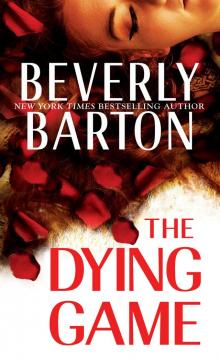 The Dying Game
The Dying Game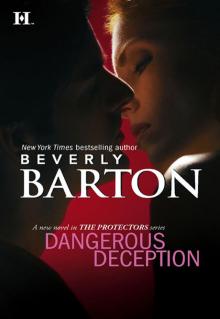 Dangerous Deception
Dangerous Deception The Outcast tp-3
The Outcast tp-3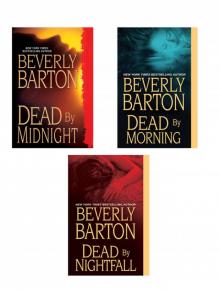 Beverly Barton Bundle
Beverly Barton Bundle Egan Cassidy's Kid
Egan Cassidy's Kid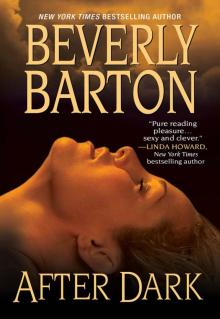 After Dark
After Dark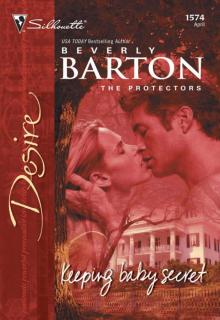 Keeping Baby Secret
Keeping Baby Secret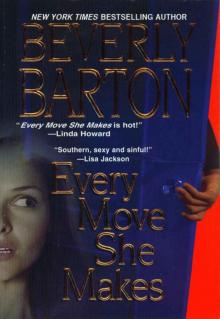 Every Move She Makes
Every Move She Makes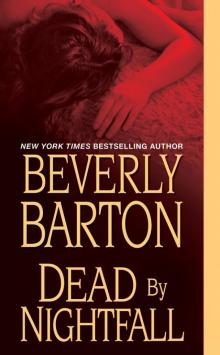 Dead By Nightfall
Dead By Nightfall As Good As Dead (Griffin Powell Book 4)
As Good As Dead (Griffin Powell Book 4)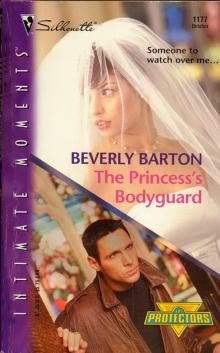 The Princess's Bodyguard
The Princess's Bodyguard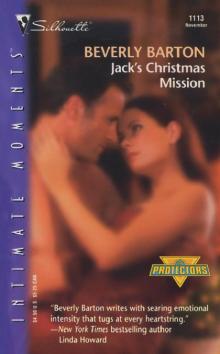 JACK'S CHRISTMAS MISSION
JACK'S CHRISTMAS MISSION In the Arms of a Hero
In the Arms of a Hero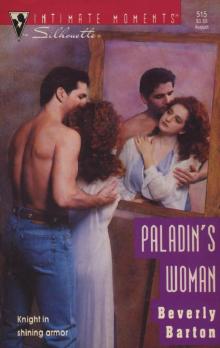 PALADIN'S WOMAN
PALADIN'S WOMAN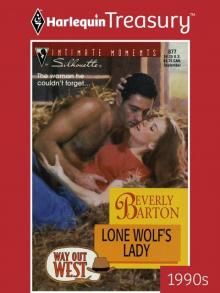 Lone Wolf's Lady
Lone Wolf's Lady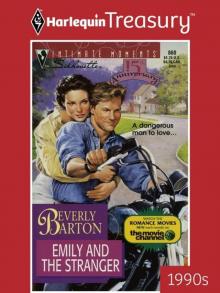 Emily And The Stranger
Emily And The Stranger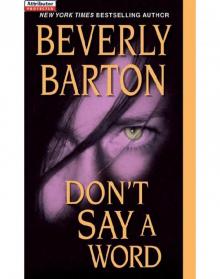 Don't Say a Word
Don't Say a Word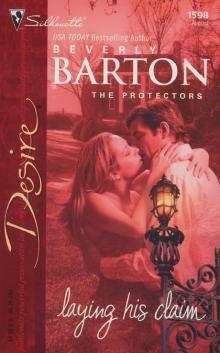 LAYING HIS CLAIM
LAYING HIS CLAIM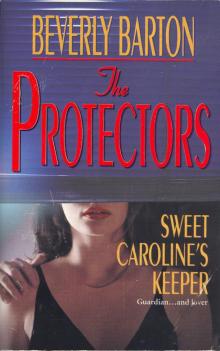 Sweet Caroline's Keeper
Sweet Caroline's Keeper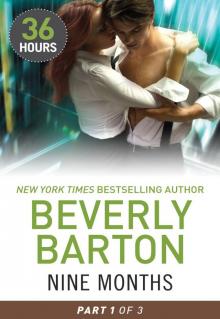 Nine Months Part 1 (36 Hours)
Nine Months Part 1 (36 Hours)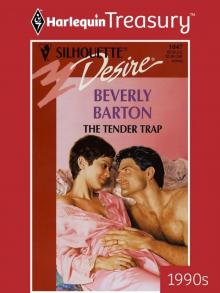 The Tender Trap
The Tender Trap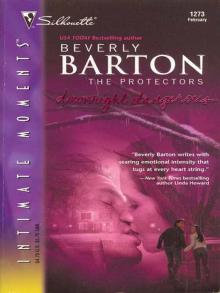 Downright Dangerous
Downright Dangerous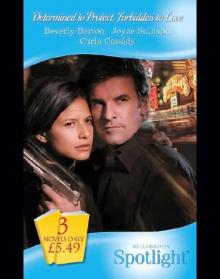 Determined to Protect, Forbidden to Love
Determined to Protect, Forbidden to Love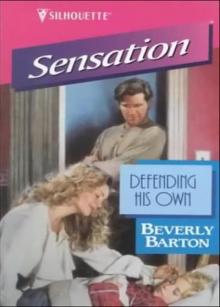 DEFENDING HIS OWN
DEFENDING HIS OWN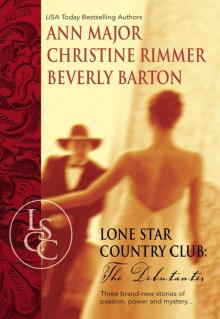 Lone Star Country Club: The Debutantes
Lone Star Country Club: The Debutantes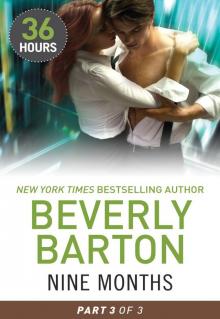 Nine Months Part 3 (36 Hours)
Nine Months Part 3 (36 Hours) Coldhearted
Coldhearted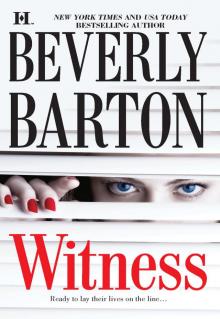 Witness
Witness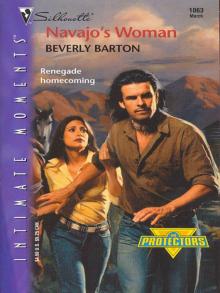 Navajo's Woman
Navajo's Woman GABRIEL HAWK'S LADY
GABRIEL HAWK'S LADY Faith, Hope and Love
Faith, Hope and Love 12 Stocking Stuffers
12 Stocking Stuffers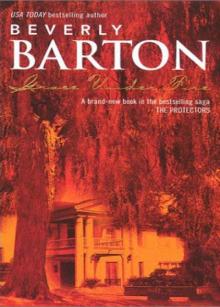 Grace Under Fire
Grace Under Fire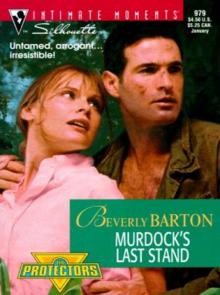 MURDOCK'S LAST STAND
MURDOCK'S LAST STAND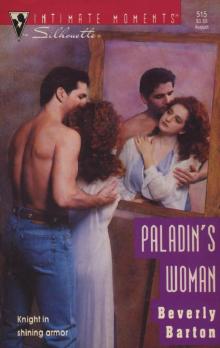 Paladin's Woman tp-2
Paladin's Woman tp-2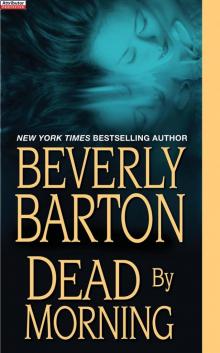 Dead By Morning
Dead By Morning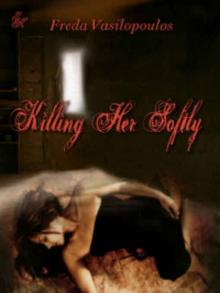 Killing Her Softly
Killing Her Softly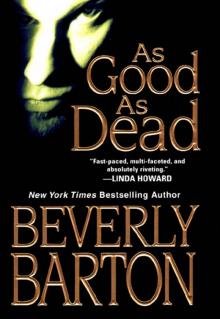 As Good as Dead
As Good as Dead Amnesia
Amnesia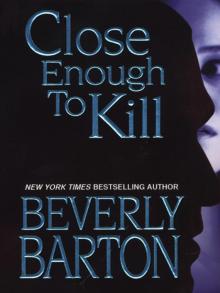 Close Enough to Kill
Close Enough to Kill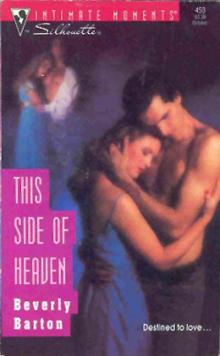 This Side of Heaven tp-1
This Side of Heaven tp-1 Her Secret Weapon
Her Secret Weapon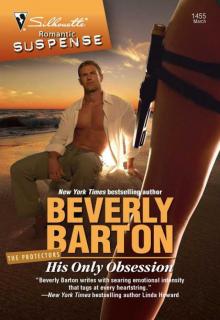 His Only Obsession (Protectors #27)
His Only Obsession (Protectors #27)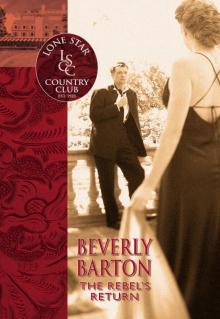 The Rebel's Return
The Rebel's Return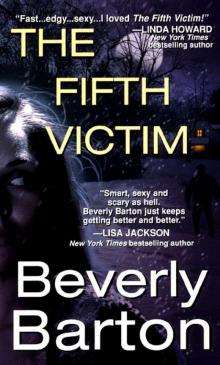 The Fifth Victim
The Fifth Victim Ready for Anything, Anywhere!
Ready for Anything, Anywhere!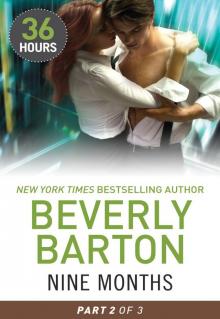 Nine Months Part 2 (36 Hours)
Nine Months Part 2 (36 Hours)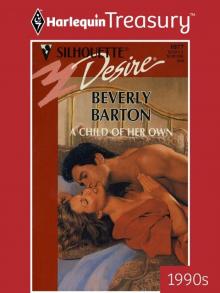 A Child of Her Own
A Child of Her Own Beg to Die
Beg to Die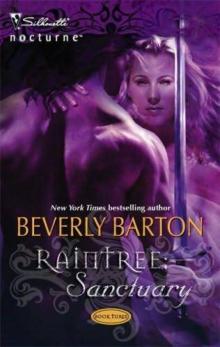 Raintree: Santuary
Raintree: Santuary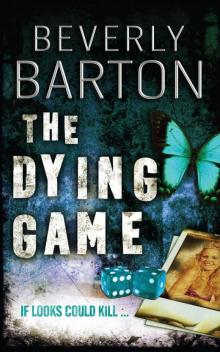 Beverly Barton 3 Book Bundle
Beverly Barton 3 Book Bundle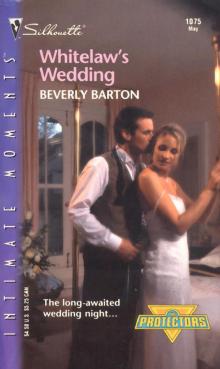 WHITELAW'S WEDDING
WHITELAW'S WEDDING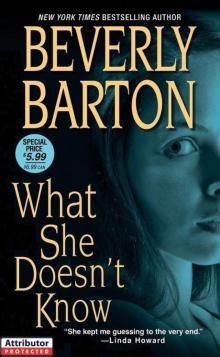 What She Doesn't Know
What She Doesn't Know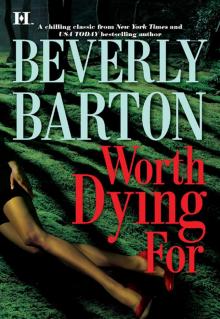 Worth Dying For
Worth Dying For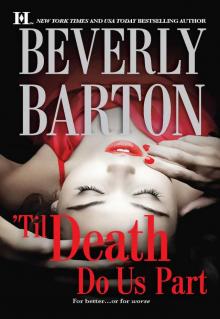 Til Death Do Us Part
Til Death Do Us Part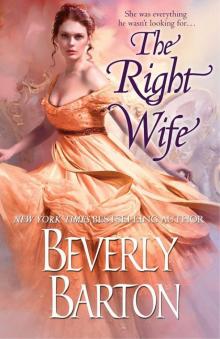 The Right Wife
The Right Wife His Only Obsession (Protectors Book 27)
His Only Obsession (Protectors Book 27)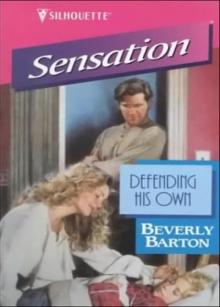 Defending His Own tp-4
Defending His Own tp-4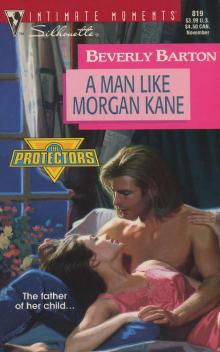 A MAN LIKE MORGAN KANE
A MAN LIKE MORGAN KANE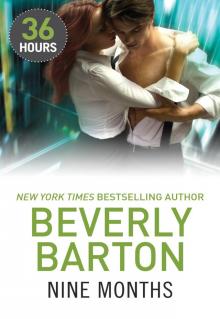 Nine Months
Nine Months If Looks Could Kill
If Looks Could Kill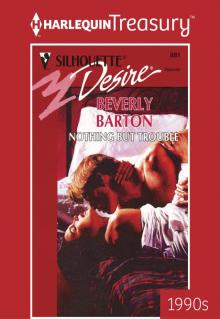 Nothing but Trouble
Nothing but Trouble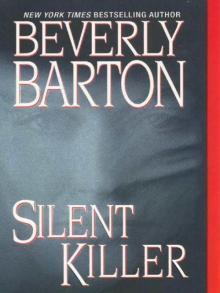 Silent Killer
Silent Killer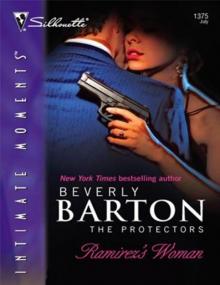 RAMIREZ'S WOMAN
RAMIREZ'S WOMAN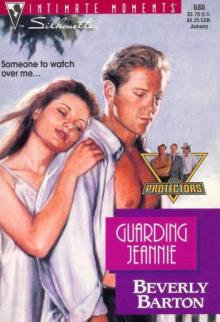 Guarding Jeannie tp-5
Guarding Jeannie tp-5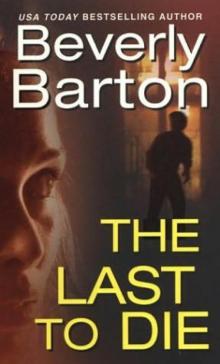 The Last To Die
The Last To Die